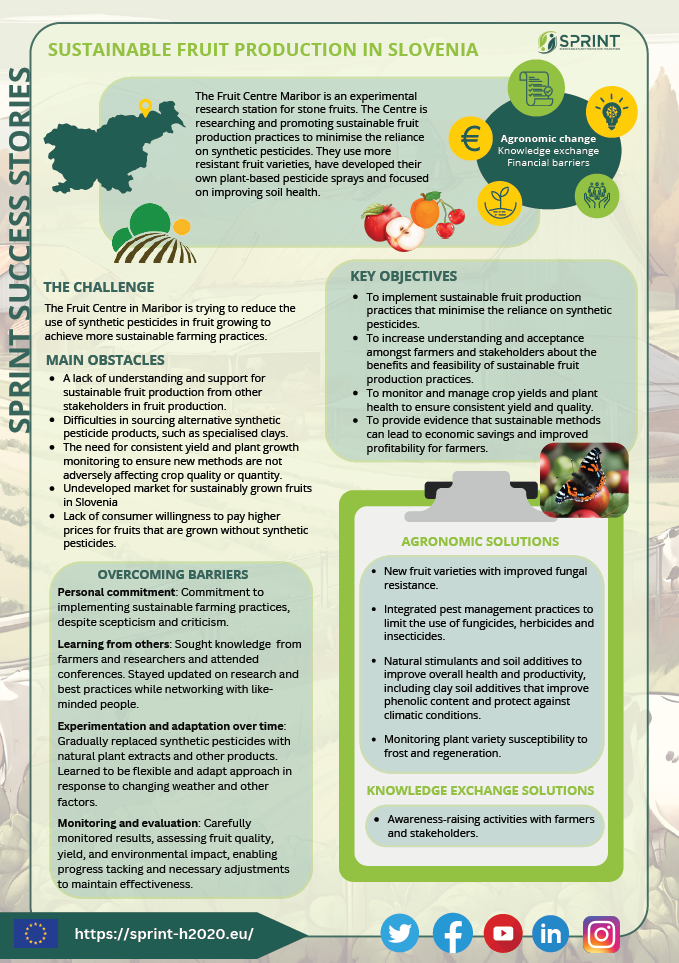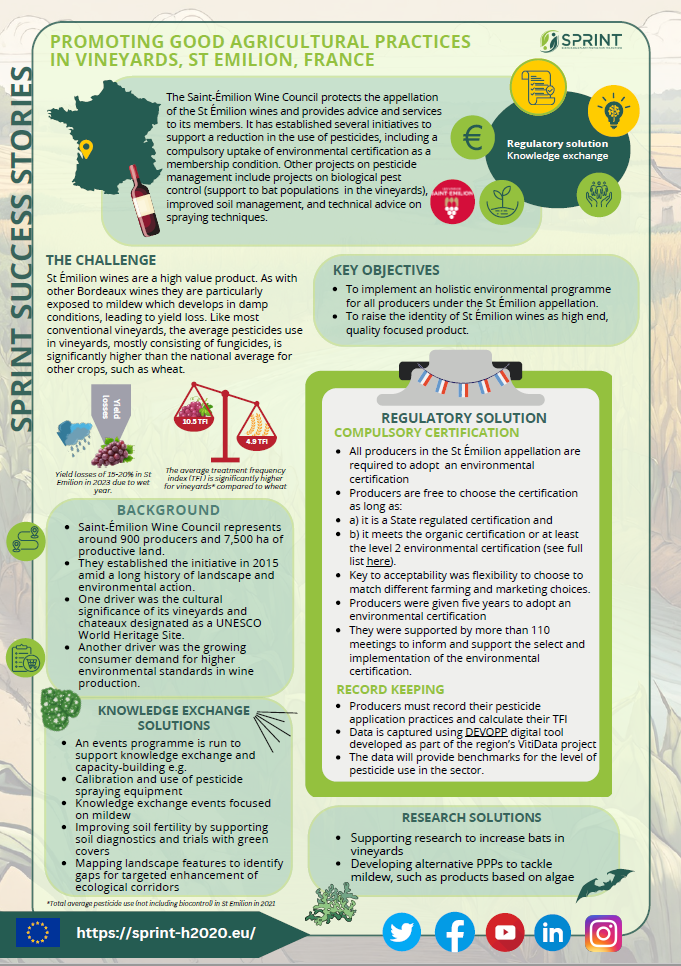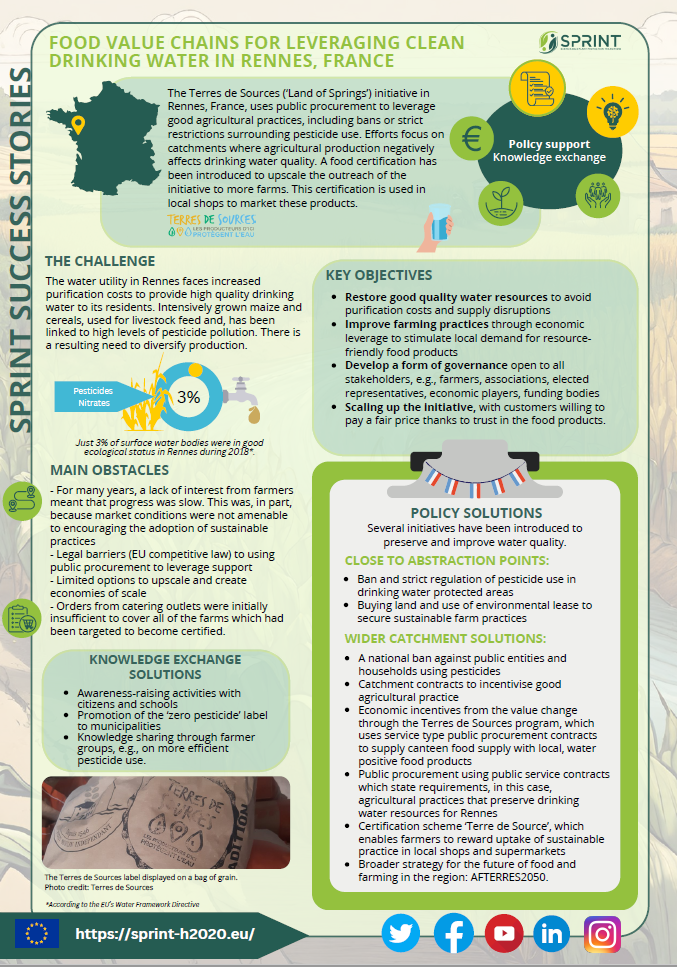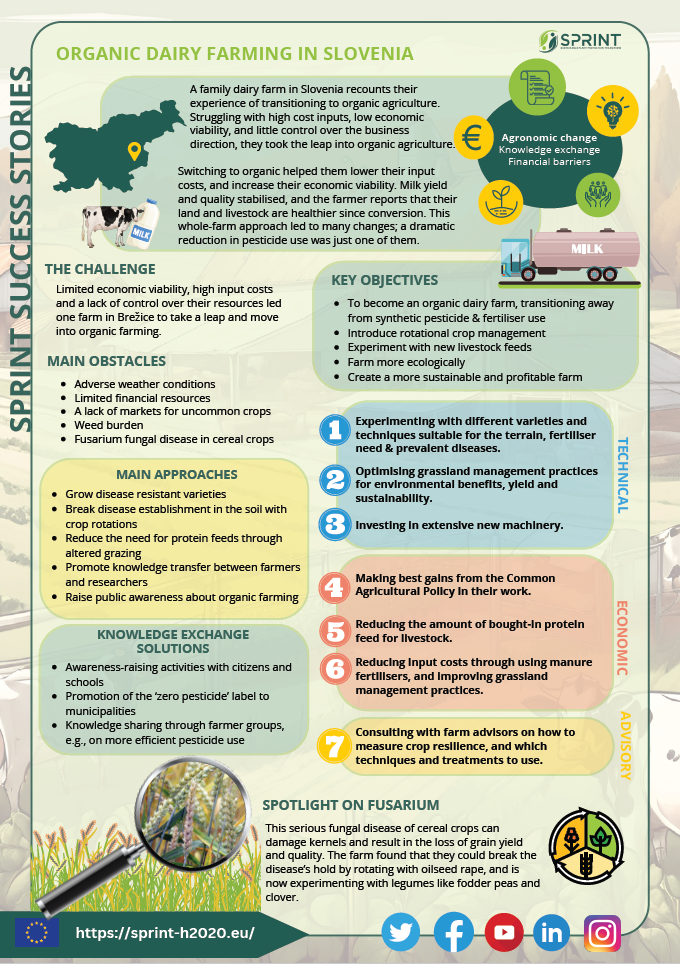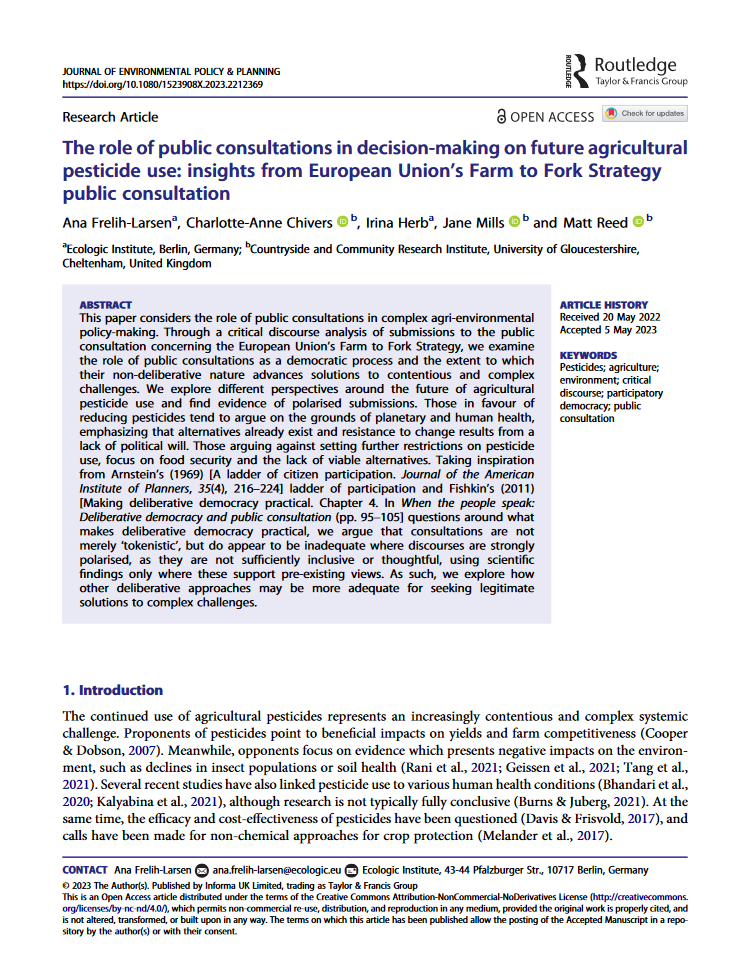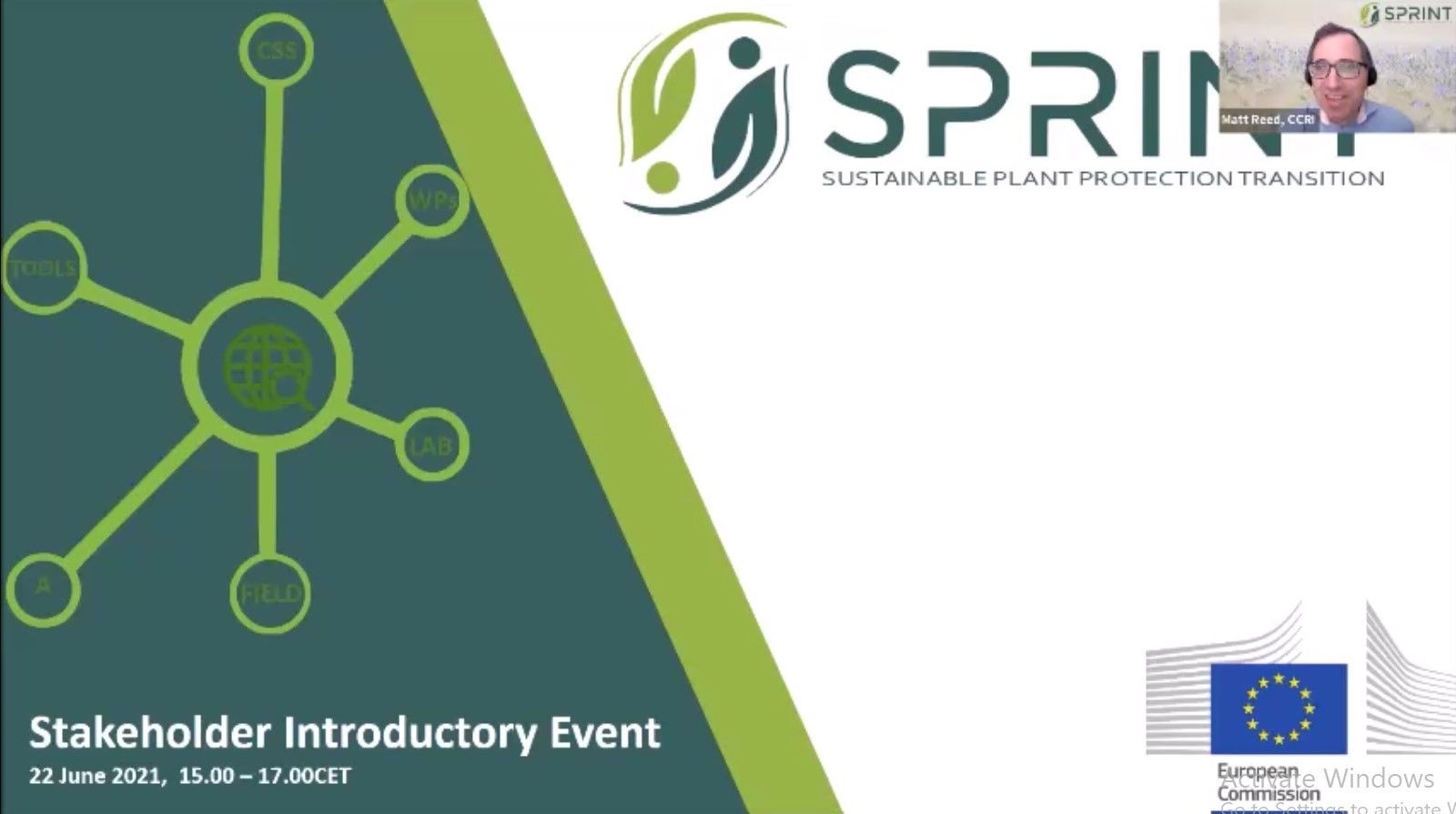Sustainable Fruit Production in Slovenia
- Publication
- Citation
Glavan, Matjaž et al. 2024: Sustainable Fruit Production in Slovenia. SPRINT fact sheet.
In Slovenia, the Fruit Centre Maribor is dedicated to promoting sustainable fruit production practices while reducing reliance on synthetic pesticides. The SPRINT project studies the Centre's work to understand how the use of more resistant fruit varieties, self-developed plant-based pesticides, and improved soil quality can contribute to more sustainable cultivation. This case study explores the challenges and solutions the Centre has encountered in implementing sustainable methods in fruit production.
The Challenge: Barriers to Sustainable Fruit Production
Implementing sustainable practices in fruit production faces several obstacles. These include a lack of understanding and support from stakeholders, as well as financial barriers that hinder access to alternative products. Additionally, the market for sustainably grown fruits in Slovenia is still underdeveloped, leading to low consumer willingness to pay higher prices for pesticide-free fruits. These challenges have made it difficult to adopt sustainable methods on a broader scale.
Sustainable Solutions: Agronomic Changes and Knowledge Exchange
The Fruit Centre Maribor has developed various agronomic solutions to reduce reliance on synthetic pesticides. These include the introduction of new, more resistant fruit varieties, integrated pest management practices, and the use of natural stimulants and soil additives. A key focus is on continuously monitoring plant development and adapting methods to changing conditions. Knowledge exchange with other farmers and stakeholders also plays a crucial role in increasing understanding and acceptance of sustainable practices.
Results and Lessons Learned: Building a Resilient Ecosystem
By gradually transitioning to natural insecticides and soil amendments, the Fruit Centre Maribor has significantly reduced its use of synthetic pesticides while promoting healthier soils and increased biodiversity. Despite reducing pesticide use, the Centre has maintained high yields and good fruit quality, demonstrating the feasibility of sustainable practices. However, the case study also highlights that additional support is needed to scale these sustainable practices more broadly.
Conclusion
Sustainable fruit production in Slovenia, as developed by the Fruit Centre Maribor and studied within the SPRINT project, shows that the transition to more environmentally friendly cultivation methods is possible while maintaining yields. However, the successful implementation of such practices requires strong commitment, continuous learning, and close collaboration between farmers, researchers, and policymakers to ensure long-term success.
